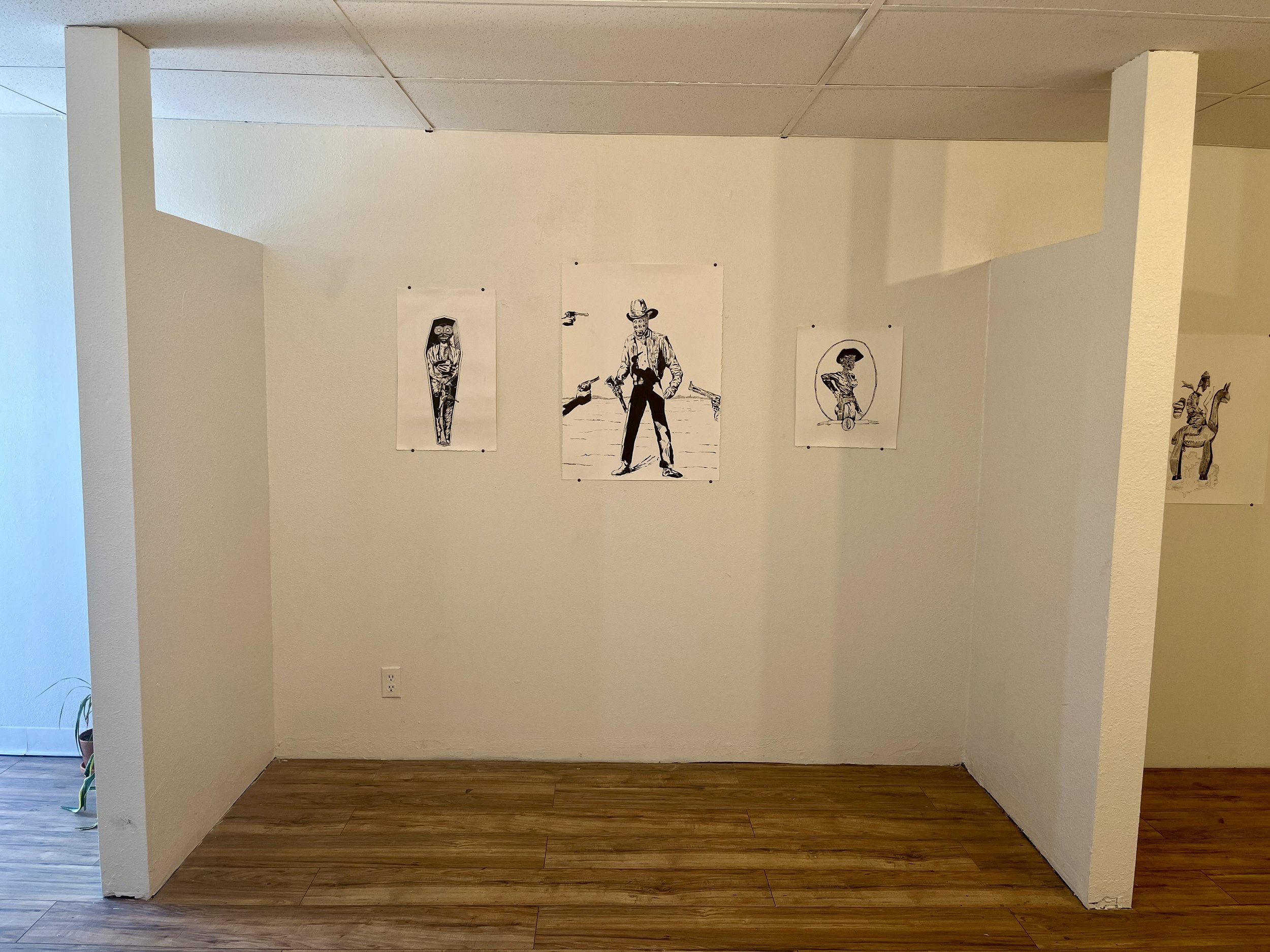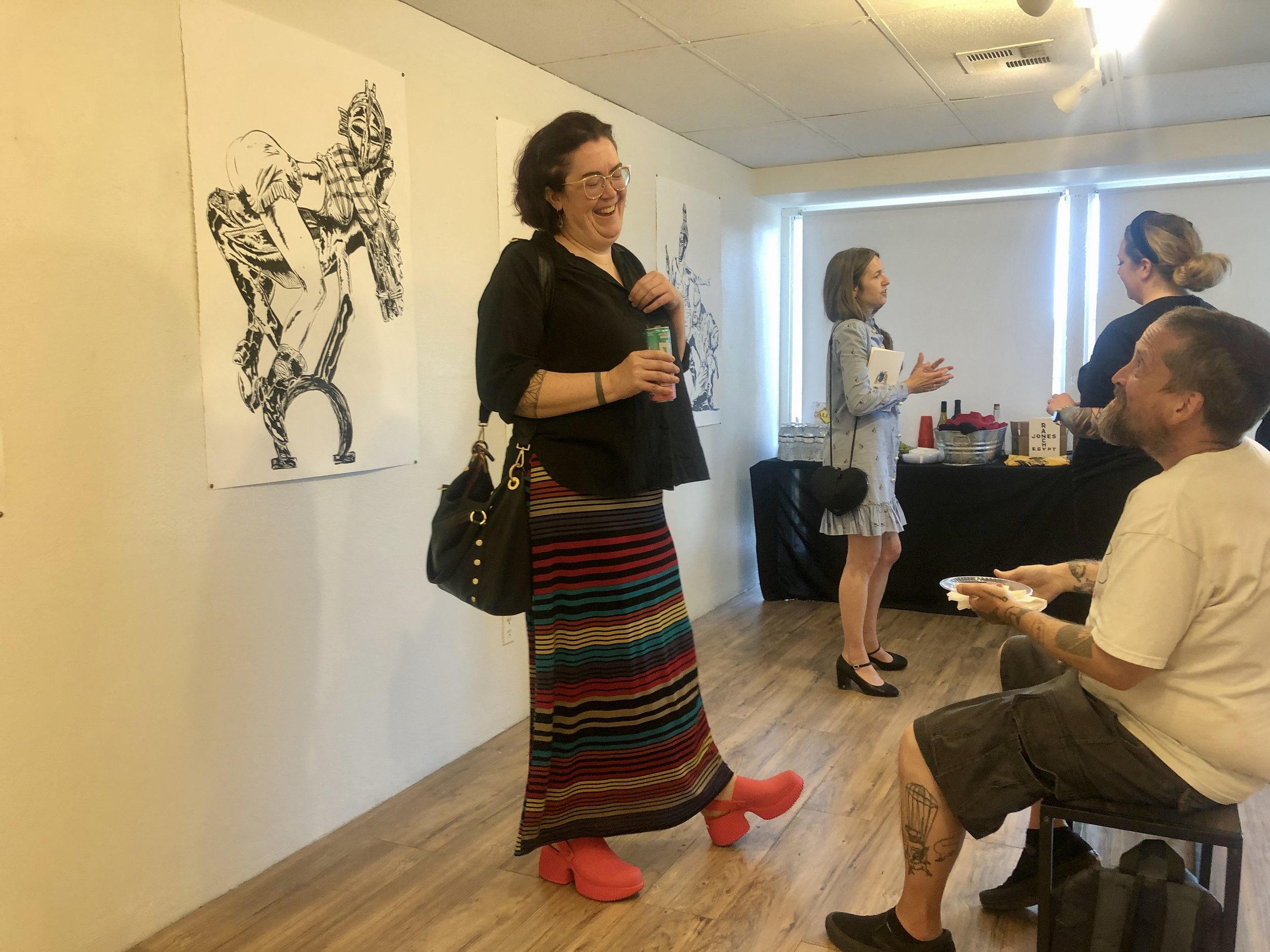"Jones Ranch Egypt" Brent Holmes
In May 2024 at ASAP an exhibition challenged the very foundations of cultural representation and historical narratives. "Jones Ranch Egypt" stands as a testament to artist Holmes' exploration of intertwined legacies, weaving together threads of European cataloging traditions, mid-twentieth-century Western agitprop, and the rich history of African sculptural and spiritual heritage.
At first glance, each piece in the exhibition appears as a convergence of disparate elements—an amalgamation of symbolic African sculptures and American Western art. Yet, upon deeper reflection, Holmes invites viewers into a profound journey, unveiling the stolen histories and obscured narratives that shape our understanding of the West and its cultural heritage.
Central to Holmes' exploration is the concept of the "imaginary West," a realm where historical truths and cultural erasures collide. Through evocative imagery and meticulous craftsmanship, Holmes confronts the viewer with the dual stolen history embedded within Western expansionism. The cowboy, an iconic figure synonymous with American individualism, becomes a canvas for Holmes to expose the often-obfuscated role of black and brown bodies in shaping the landscape of the West.
Intriguingly, Holmes draws parallels between the cultural erasure perpetuated by the depiction of cowboys and the institutionalized theft of African artifacts. By juxtaposing these narratives, Holmes highlights the interconnectedness of historical injustices—both in the portrayal of marginalized communities in Western art and the exploitation of African cultural heritage.
One of the most compelling aspects of "Jones Ranch Egypt" is its call for a liberated narrative surrounding foregone trajectories in human history. Through the fusion of African symbolism and Western iconography, Holmes constructs a visual dialogue that challenges conventional understandings of cultural ownership and representation. Each artwork serves as a poignant reminder of the complexity of human experience and the urgent need to confront the legacies of colonialism and cultural appropriation.
Moreover, Holmes' exhibition serves as a rallying cry for inclusivity within the art world—a demand for the recognition of marginalized voices and the celebration of diverse cultural heritage. By reclaiming and recontextualizing historical narratives, "Jones Ranch Egypt" offers a glimpse into a more equitable and inclusive future—one where the stories of the oppressed are no longer silenced but celebrated.
As visitors navigated the landscape of "Jones Ranch Egypt," they were invited to confront uncomfortable truths and reimagine the possibilities of collective memory. In this transformative journey, Holmes beckons us to confront the shadows of our past and embark on a quest for truth, justice, and reconciliation.
In a world grappling with the legacies of colonialism and systemic oppression, "Jones Ranch Egypt" stands as a testament to the transformative power of art in reshaping our understanding of the past and envisioning a more just and equitable future.
Curated by Sydney Galindo
About the curator:
Sydney Galindo, a first-generation Filipina American of Visayan and indigenous descent, is a curator with a strong commitment to decolonizing the art world. With an emphasis on re-indigenization and curatorial activism, her practice revolves around spotlighting minority artists and their distinctive experiences. Armed with a BA in Art History from the University of Nevada, Las Vegas, Galindo is currently pursuing her master’s in museum studies, aiming to reshape the dialogue around art, culture, and representation.








































































